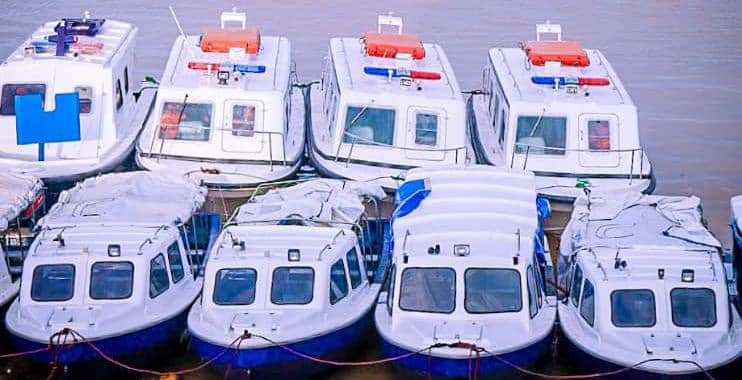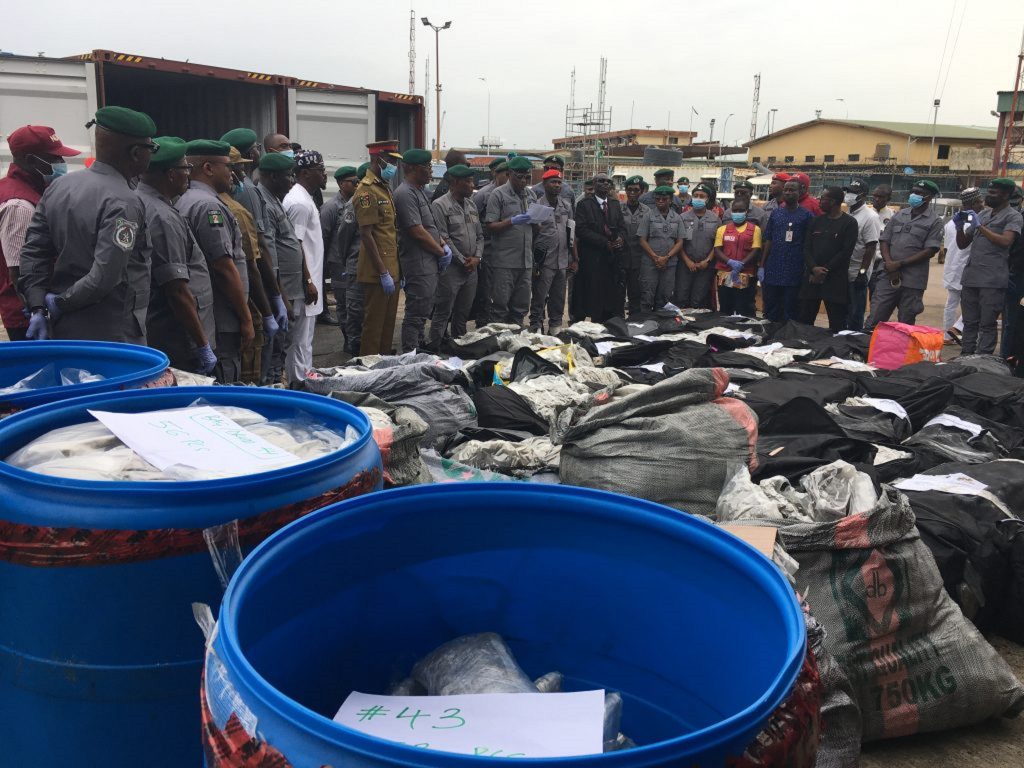The Minister of Marine and Blue Economy, Adegboyega Oyetola, on a one-day working visit to the National Inland Waterways Authority (NIWA), Lokoja, Kogi State, inaugurated several landmark projects aimed at enhancing the operational capabilities and safety standards of Nigeria’s inland waterways.
In his address, Oyetola emphasized the critical role of the maritime sector in improving Nigeria’s balance of trade, strengthening the naira, and creating employment.
“The Federal Ministry of Marine and Blue Economy is determined to maximize the comparative advantages our maritime resources present, in line with President Bola Ahmed Tinubu’s Renewed Hope Agenda,” he stated.
A key achievement celebrated during the visit was the long-awaited Water Transportation Code. This new regulatory framework is expected to significantly standardize water transportation, minimize accidents, and provide a structured environment for potential investors.
The Minister commended NIWA’s management for their efforts in bringing this vital code to fruition.
The projects inaugurated include fifteen boats of varying capacities and purposes, designed to enhance surveillance, safety enforcement, and emergency response on Nigeria’s waterways.
Notably, the fleet comprises three surveillance boats, five safety enforcement boats, a gun patrol boat, a 62-seater passenger boat as a pilot scheme to replace traditional wooden canoes, three water ambulances, and two hydrographic survey boats equipped with multi-beam echo sounders.
“These initiatives fulfil our commitment to ensuring our inland waterways are well-utilized for both cargo shipment and passenger transportation,” Minister Oyetola remarked.
He also pledged to address both internal and external challenges impeding NIWA’s operations, ensuring continuous improvement and expansion of navigable waterways.
While discussing the ministry’s future plans, the Minister revealed the goal to increase navigable waterways by at least 2,000 kilometers through comprehensive dredging. He also mentioned ongoing efforts to finalize the disbursement of the Cabotage Vessel Financing Fund (CVFF), which aims to support the development of the maritime sector.
The Minister called upon the private sector to invest in and partner with the government, leveraging the numerous opportunities within the maritime industry to foster sustainable development.
“We will continue to create an enabling environment, develop supportive policies, and offer necessary assistance to grow the Inland Waterways segment,” he assured.
Speaking on the occasion, Kogi Governor, Alhaji Usman Ododo, represented by his deputy, Comrade Salifu Joel, commended President Bola Ahmed Tinubu for appointing the right person as NIWA’s MD.
He further said “When we were coming here, our people asked where we were going, I told them we were going to a NIWA’s event. They asked, ‘which one is NIWA?’ This means until now, no one knows NIWA. But we know NIWA now because the President has appointed the right person that is making impact.”
In his welcome address, Mr. Bola Oyebamiji, the Managing Director/CEO of NIWA, expressed gratitude for the Honourable Minister’s support and guidance in driving organizational reforms and enhancing operational efficiency.
He outlined the agency’s proactive measures, including the implementation of education grants, promotion letters, and medical packages for staff, to boost morale and productivity.
Mr. Oyebamiji also highlighted NIWA’s initiatives in public engagement, emergency response, and enforcement, culminating in the launch of the first phase of water marshal initiatives. These efforts, coupled with the unveiling of the Transportation Code, he said, underscore NIWA’s commitment to ensuring the safety and efficiency of inland water transportation.
Also speaking, the Permanent Secretary, Mr. Oloruntola Olufemi, commended the the NIWA management for the feat achieved so far and encouraged it to do more. He also assured NIWA of the ministry’s support in actualising its mandate.
After the minister’s address, he officially inaugurated the newly-completed projects, marking a significant step forward in the development of Nigeria’s maritime infrastructure.


































































